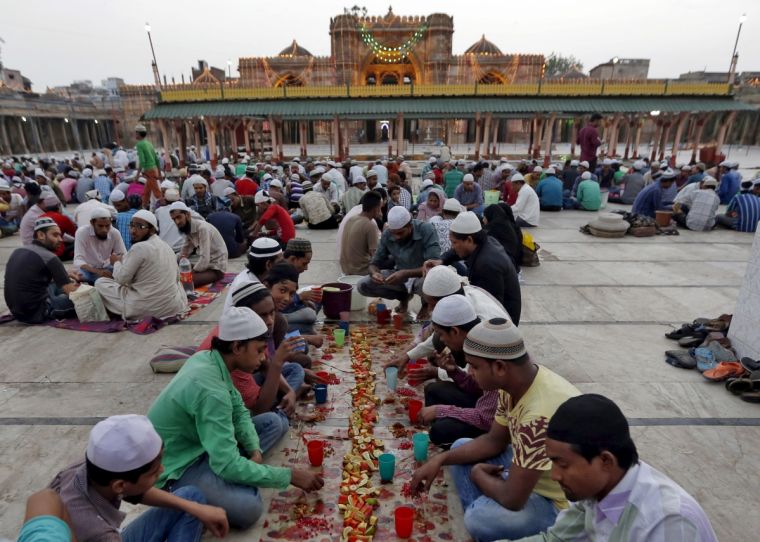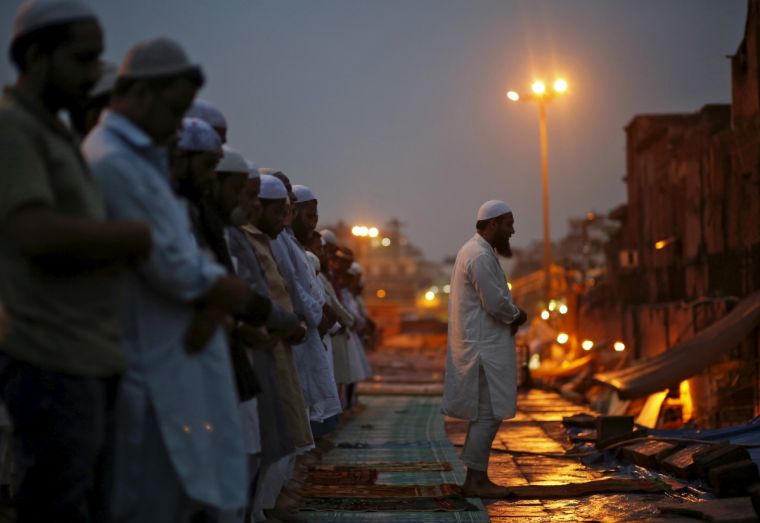5 things Muslims do over Ramadan
Ramadan begins at dawn on Tuesday 7 June this year.
Muslim men and women will begin their holy month of fasting just before sunrise (in the UK this is at 4.45).
The fast is based around a lunar calendar which means it does not come at a regular time when compared to the Western Gregorian calendar. Every year Ramadan happens roughly 11 days earlier than the year before.
For followers of Islam in the UK, Ramadan 2016 has fallen over the summer equinox, which means the fast days will be the longest for more than 30 years. In the UK the fast will last for more than 16 hours. But that is not as long as other more northerly countries. In the Icelandic capital of Reykjavik for example, daylight lasts for up to 21 hours. However in some northern countries a fatwa, or instruction, has been issued to say the fast can be adjusted to fit in with daylight hours in Mecca, Saudi Arabia, where Islam originated.
But other than timings, here are five things Muslims do during Ramadan.

1. 'Refrain' from food, water and sex.
The Arabic word for fasting literally means "to refrain". In daylight hours during Ramadan, Muslims do not eat or drink anything, not even water.
But the fast does not just cover food. There is also a wider encouragement to refrain from sex and habits that are considered harmful such as smoking, swearing, and gossiping.
Through this discipline Muslims believe they can understand life for those less fortunate as well drawing closer to God.
2. Give to the needy
Much like Christians are often particularly generous around Christmas time, Ramadan is a time when Muslims are reminded of the need to give to charity.
Islamic aid charities often run campaigns around this time to encourage Muslims to donate. If someone is unable to fast through illness, old age, or if they are pregnant woman, they are encouraged to make up for it by feeding a needy person for each day they do not fast.

3. Search for the 'Night of Power'
Muslims believe that the first verses of the Qur'an were given to Muhammad in Ramadan. Tradition dictates that the night his visions began was on one of the odd nights in the last 10 days of Ramadan.
It is known as Laylat al-Qadr and is believed to be one of the holiest nights in the Islamic year.
Many Muslims consider this night to be better than 1000 months of worship and a time where Allah's blessings and kindness are abundant.
4. Recite specific prayers
One of the key tenets of Islam is the daily prayers but in Ramadan specific prayers are said.
The Tarawih Salah are extra prayers performed by Sunni Muslims at night during Ramadan. They are considered optional and are often performed along with a complete recitation of the Qur'an over the month.
5. Break the fast in community
Muslims often invite their friends and neighbours to share the evening meal just after sunset when the fast is broken.
This is called an Iftar and is not delayed into the evening.
The fast is traditionally broken with an odd number of fresh dates and a few sips of water before the proper meal begins.











